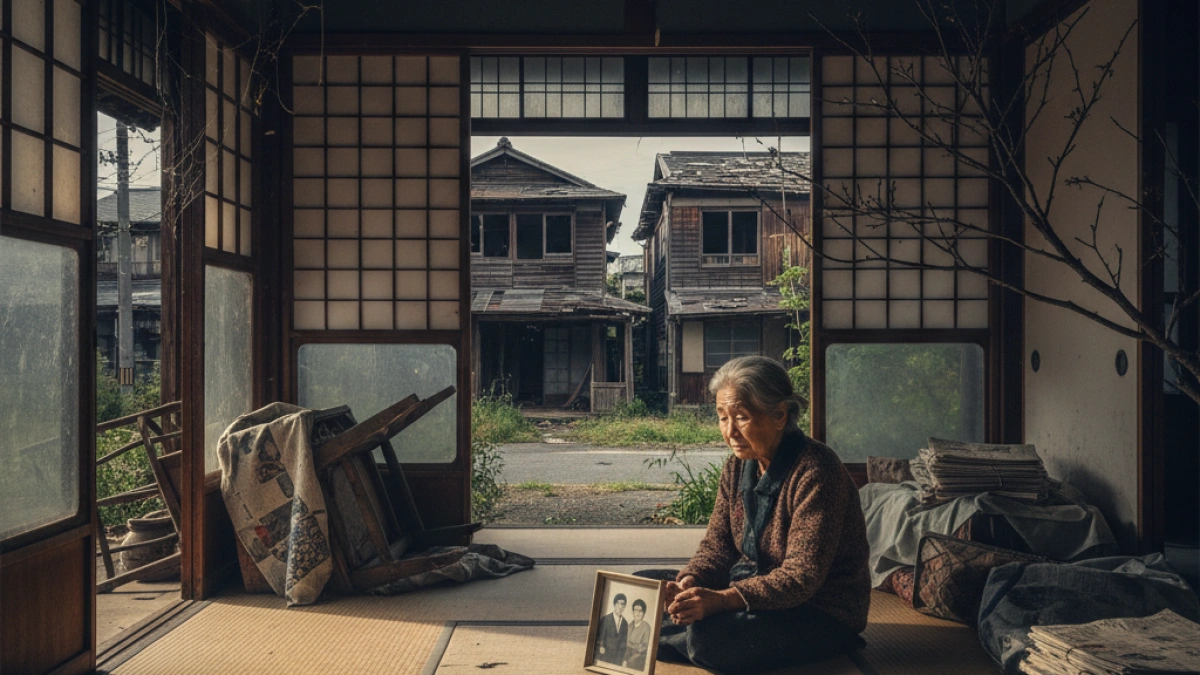Japanese society is in the midst of a concerning social crisis affecting its elderly citizens. A growing phenomenon, marked by the increase of vacant homes and the loneliness of older adults, has caught the attention of both authorities and the general public. With a rapidly aging population, Japan is facing challenges that require urgent attention.
The Loneliness of the Elderly in Japan
In Japan, it is estimated that a significant portion of the elderly population lives alone. According to projections, by 2030, approximately 30% of the population over 65 could experience loneliness. This phenomenon has intensified, with many older individuals having lost their partners or not having children or close relatives. This social isolation has become a critical factor affecting their overall well-being.
Vacant Houses: A Growing Challenge
The disuse of houses has reached alarming levels. It is estimated that there are around 8 million vacant homes in Japan, a number that continues to increase over the years. These properties, often inherited by people who move to cities or can no longer maintain them, represent a tangible manifestation of the loneliness crisis affecting the country. Experts have indicated that this situation not only affects the elderly but also results in a waste of resources that could be utilized by others.
Strategies to Address the Crisis
In response to this issue, Japanese authorities have begun to implement various strategies. Programs have been developed to connect the elderly with their communities, fostering activities that help them socialize and feel part of a whole. For example, initiatives promoting the use of public spaces and the organization of community events have been launched in different regions of the country.
Additionally, technology has started to play a crucial role in the search for solutions. Algorithms have been used to identify patterns of isolation and establish connections between individuals who could mutually benefit from each other's company. This approach aims not only to mitigate loneliness but also to provide a safety net that can alert authorities to risky situations.
The Importance of Prevention
The growing concern about loneliness among the elderly has led to a greater focus on prevention. Families, communities, and the government are being called to take proactive measures that not only help identify those living alone but also provide emotional and physical support. Collaboration among various entities, including health institutions and community organizations, is essential for effectively addressing this issue.
Conclusion
The loneliness crisis and the increase in vacant houses in Japan are a clear reflection of the challenges faced by a changing society. It is essential that initiatives continue to be implemented to promote socialization and connection between the elderly and their communities. Solutions must be comprehensive, considering not only the improvement of the quality of life for the elderly but also the optimization of available housing resources.
I invite you to keep reading more interesting news on my blog, where we address relevant and current topics. Don't miss it!





















